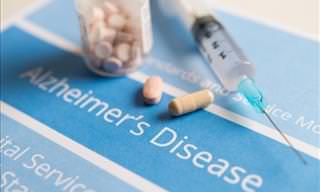The majority of prescription drugs come with such a long list of possible side-effects that many patients have no idea what they’re really getting themselves into. However, when the potential consequences include depression and suicide, ignorance definitely isn’t bliss.
A new study has revealed that between 2005 and 2014, 37.2% of American adults may have been unknowingly using common medications that can cause depression. Dima Qato, the lead author and an assistant professor at the University of Illinois, says that “many may be surprised to learn that their medications, despite having nothing to do with mood or anxiety or any other condition normally associated with depressions, can increase their risk of experiencing depressive symptoms, and may lead to a depression diagnosis.”
The National Health and Nutrition Examination Survey examined over 26,000 Americans over the age of 18, excluding those who were already using antidepressants. Their findings revealed that over 2oo commonly used prescription drugs listed depression or suicide as potential consequences. This included drugs such as hormonal birth medication, painkillers, antacids, and blood pressure medication. These medications are available over the counter and their warning labels don’t list comprehensive information on their potentially deadly side effects.
As a result, the researchers state that “many patients may therefore not be aware of the greater likelihood of concurrent depression associated with these commonly used medications.” To exacerbate matters, when these drugs are used together (polypharmacy), the prevalence of depression increases.
The survey found that about 15% of those who used three or more of these drugs experienced depression – a huge jump from the 7% that used only one medication, and the 9% that used two. In comparison, only 5% of those surveyed experienced depression without taking any medications, roughly three times fewer than those taking three medications.
Qato says that “the takeaway message of this study is that polypharmacy can lead to depressive symptoms and that patients and health care providers need to be aware of the risk of depression that comes with all kinds of common prescription drugs – many of which are also available over the counter.”
The need to increase awareness about this issue is important especially since polypharmacy has become more popular. The study found that between 2005 and 2015, American patients taking more than one of these drugs jumped from 7 to 10%.
Nevertheless, a worrying number of medical professionals and patients have no clue about the risks that polypharmacy holds. Right now, typical depression screening tests don’t take into account prescription medications that list depression as a possible side effect.
This issue is even more pressing given that depression and suicidal side effects are becoming more common in pharmaceuticals. In fact, the study found that depression side effects increased by a 35% in prescription medications between 2005 and 2006. From 2013 to 2014, that number increased to 38%.
When it comes to prescription drugs listing suicide as a potential side effect, the numbers become even more worrisome, increasing from 17 to 24% over the same period.
This new study comes shortly after a recent report by the Centers for Disease Control that found a shocking increase in suicide rates across the US. While it can’t be proved that this is directly related to the side effects of prescription drugs, it certainly speaks to a larger problem – how much more the public health system needs to focus on depression and suicide.
Qato argues that I order to solve the problem that was identified in his study, we need to update our drug safety software so that patients, medical professions, and pharmacists all know that taking multiple drugs may increase a patient’s risk of developing depression and committing suicide.
Source: sciencealert
Images: depositphotos
 Go to BabaMail
Go to BabaMail





















































